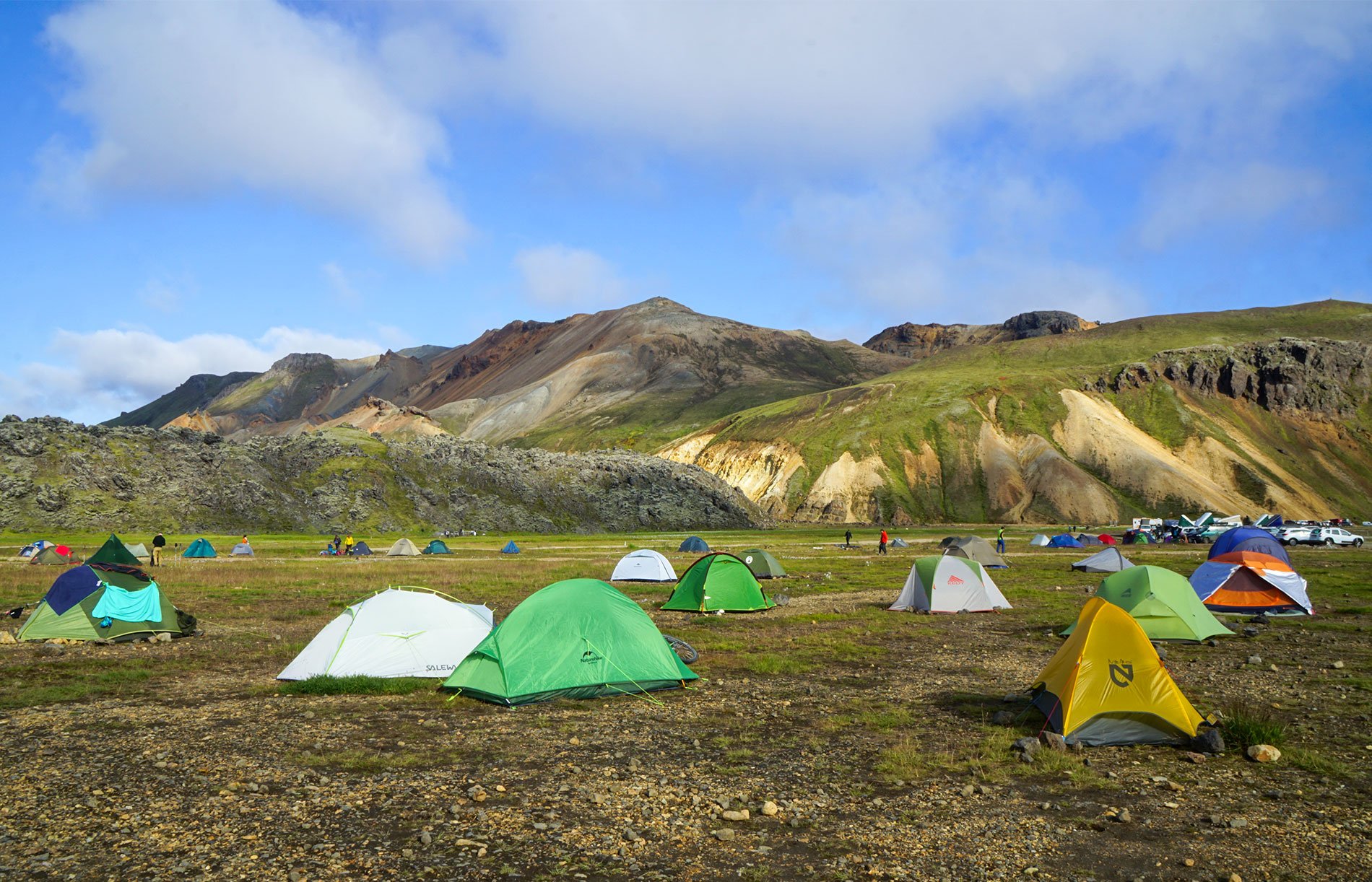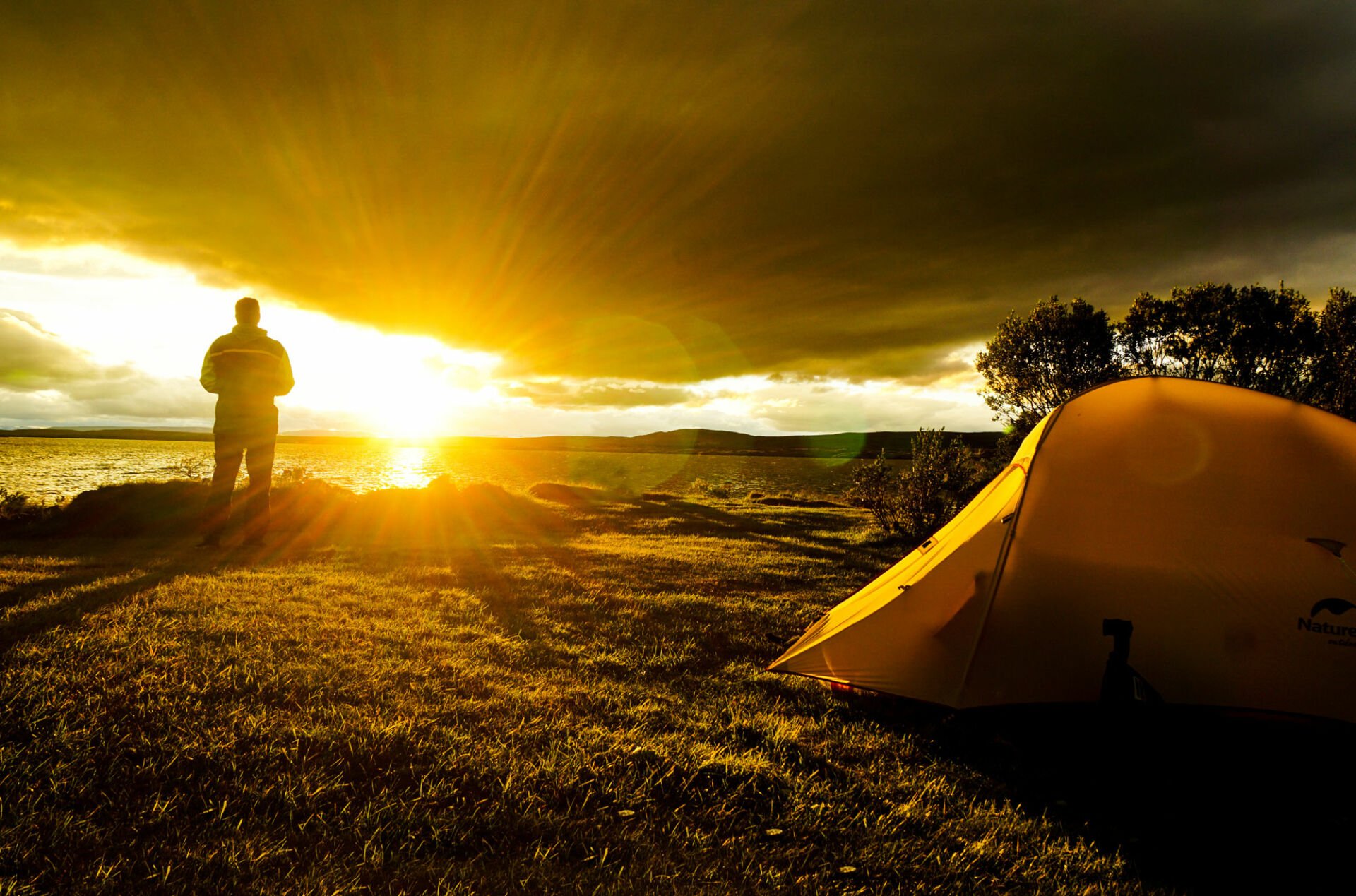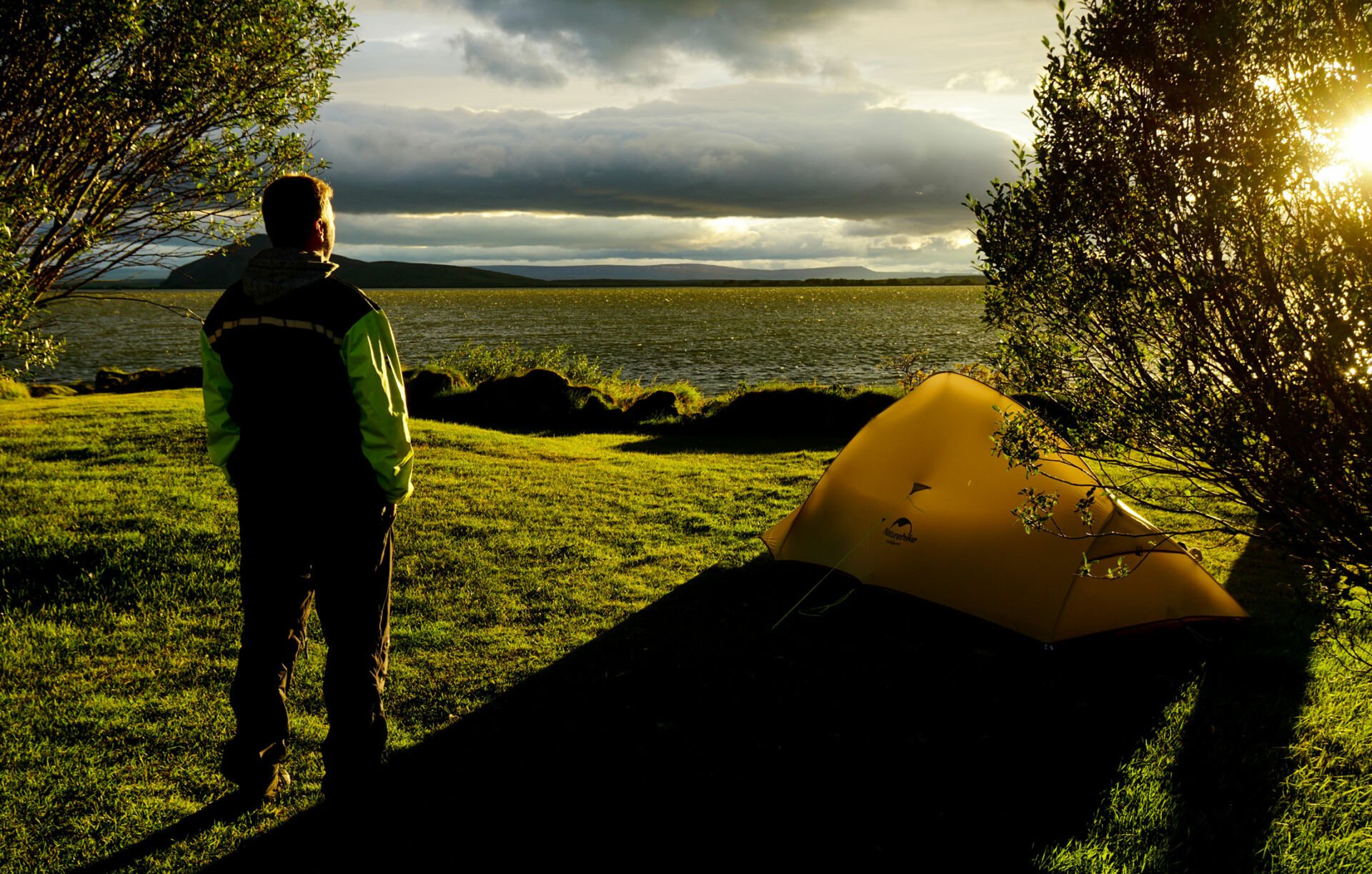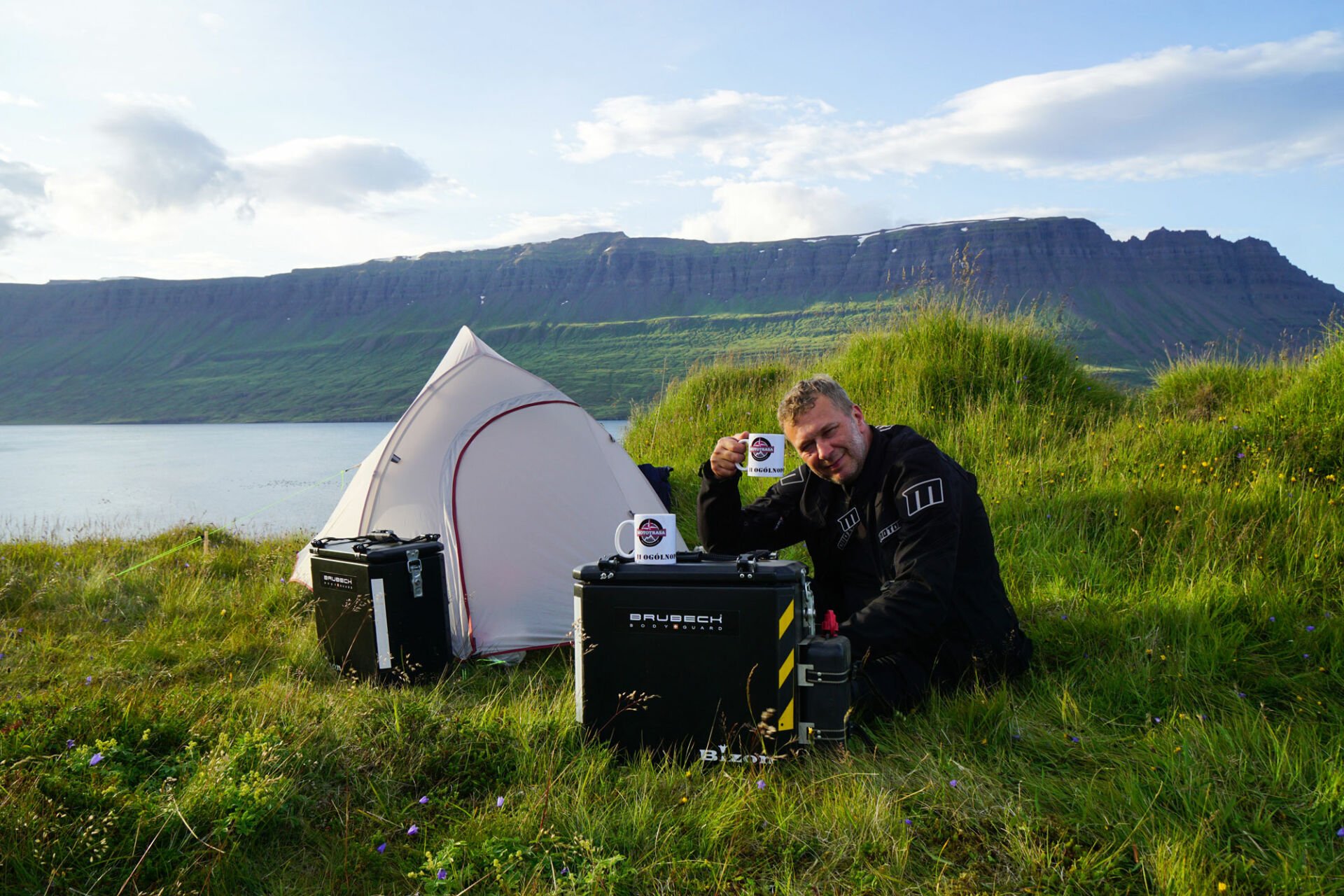Have you heard that Iceland is a country that is a paradise for people who love camping surrounded by stunning nature? That wilderness overnight stays in Iceland are allowed and you can pitch a tent anywhere? You’ve probably come across outdated information, because a lot has changed in this regard in recent years. Read our article to find out where and in what cases you can pitch a tent, and where it is strictly forbidden.

OVERNIGHTING WILD CAMPING IN ICELAND – LEGAL OR NOT?
In November 2015, new conservation laws went into effect that make changes to where camping is allowed. For example, it is now illegal to spend the night in caravans, cars with tents on the roof, campers, mini-campers and other vehicles outside organized campgrounds (unless the landowner agrees). That is, if you have planned to rent a car big enough to spend the night in, you should spend the night at a campground. That’s the theory. We heard a lot of opinions that no one ever caught on if you spent the night outside the campground, somewhere off the main road in some brushwood, but I guess it depends on who you run into. We leave the choice up to you, in case you need it, a map of available campgrounds is posted below. As it has been a tough time for the tourism industry, we do not guarantee that they all still exist.
OVERNIGHTING WILD CAMPING IN ICELAND – WHERE CAN I PITCH A TENT?
While spending the night in the wild in a car is not possible, if we have a tent (the traditional kind) with us, we get many more opportunities to stay overnight outside of designated areas. So, where can we camp legally and stress-free?
- Along public roads in an inhabited area, but only for one night and if there is no camping nearby. In addition, it must not be a cultivated field (beware of meadows, which are treated the same as fields).
- On uncultivated land, unless the landowner has forbidden it.
- On uncultivated land, whether on private or state land, unless the landowner or manager has prohibited it.
- Away from public roads, on both private and state land, unless restricted by special regulations, which we will write about below, or the owner or manager of the land has prohibited it.
To make things not so rosy, as of 2017, the entire south of Iceland, the most touristic region, is banned from sleeping wild, even for one night in a tent. The ban applies to the regions: Hornafjörð, Skaftárhrepp, Mýrdalshrepp, Rangárþing eystra, Rangárþing ytra, Ásahrepp, Sveitarfélagið Árborg, Flóahrepp, Skeiða- and Gnúpverjahrepp, Hrunamannahrepp, Bláskógabyggð, Grímsnes- and Grafningshrepp, Hveragerðisbæ og Sveitarfélagið Ölfus.

OVERNIGHTING IN THE WILD IN ICELAND – WHEN DO I NEED THE LANDOWNER’S PERMISSION?
- If we plan to camp near people’s homes or farms.
- If we plan to camp for more than one night.
- If we plan to pitch more than three tents.
- If the land is cultivated.
- If we plan to spend the night in a caravan, car with tents on the roof, camper, mini-camper, or other non-camping vehicle.

RESTRICTIONS ON CAMPING IN PROTECTED AREAS
Protected areas are a separate tale, and in virtually all parks or protected areas we will encounter a ban on overnight stays outside of camping areas. We can apply for a permit from the Environment Agency, but this is an option rather reserved for researchers only. Below is a table with information on where you can and can’t go.
Obszar Uwagi Snæfellsjökull National Park Hikers and cyclists must obtain permission from the ranger. Otherwise, camping and overnight stays are not allowed. Vatnajökull National Park Overnight camping outside of organized campgrounds is completely prohibited in areas under special protection - Jokulsargljufur, Askja, the Hoffellssvaedi and Heinabergssvaedi lowlands, Skaftafellsheidi, Baejarstadarskogur and Morsardalur. In addition, wild camping is permitted in the Skaftafell mountains at an altitude of more than 400 meters above sea level and at the mouth of the Kjos River. Herðubreiðarfriðland You can only camp in marked areas. In other places, a permit from the Environmental Protection Agency of Iceland is required. Fjallabak You can camp at marked campgrounds. Hikers can camp along marked walking paths. Elsewhere, you can only camp or spend the night with special permission from Iceland's Environmental Protection Agency. Dyrhólaey Camping and overnight stays only with the approval of the Environmental Protection Agency of Iceland. Grábrókargígar í Norðurárdal Camping and overnight stays only with the approval of the Environmental Protection Agency of Iceland. Dynjandi Camping and overnight stays are not allowed. Hikers and cyclists are allowed to camp for one night. Álafoss, Blábjörg á Berufjarðarströnd, Bringur í Mosfellsdal, Dimmuborgir, Hverfjall/Hverfell, Kattarauga, Kirkjugólf, Seljahjallagil, Bláhvammur, Þrengslaborgir i okolice, Skógarfoss, Skútustaðagígar, Ströndin við Stapa og Hellna, Teigarhorn Camping and overnight stays are not allowed. Mývatn Camping and overnight stays are not permitted outside of marked camping areas. Vatnsfjörður Camping and overnight stays are not permitted outside of marked camping areas. Þingvellir National Park Camping and overnight stays are not permitted outside of marked camping areas. Ingólfshöfði Camping and overnight camping only with the permission of Iceland's Environmental Protection Agency and local supervisors.

STILL HAVE NO IDEA WHERE TO CAMP AND WHERE NOT TO?
We understand you perfectly. :))) When we tried to understand the rules of wild camping in Iceland the first time, it took us a while. The profusion of Icelandic names that are impossible to remember did not make things easier. In addition, in many places, we still ended up with outdated information, which created even more confusion in our heads. Hence the idea to sort out the rules in this post. Once we got our heads around the material, it turned out that it’s not as complicated as it might seem. In summary, if you want to camp with a tent in the wild in Iceland, avoid the entire south of the island, all National Parks and protected areas. In other places, wild camping overnight is more or less acceptable. If you don’t feel confident and don’t want to risk a fine, you can always drive up to a campground, of which there are actually quite a few throughout the island. Those of you who plan to spend your nights in a car, camper or other vehicle must unfortunately use campgrounds. Also be sure to take a look at our guide, you will find a ton of useful information on travel and accommodation in Iceland. You can find the link here.
